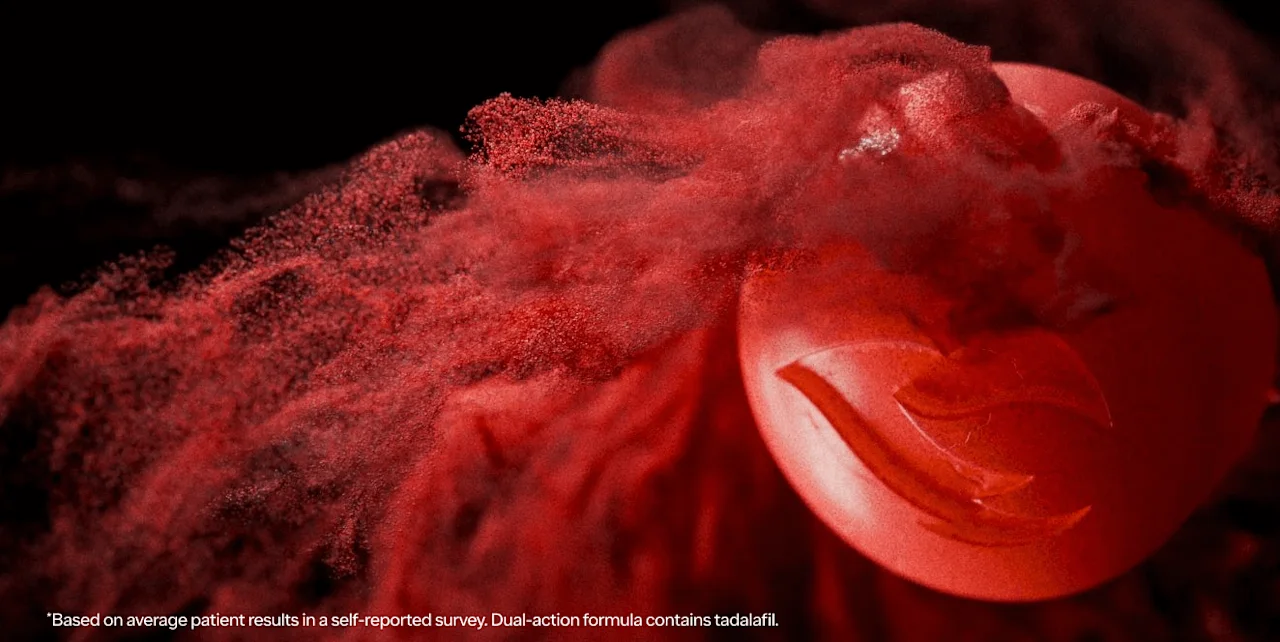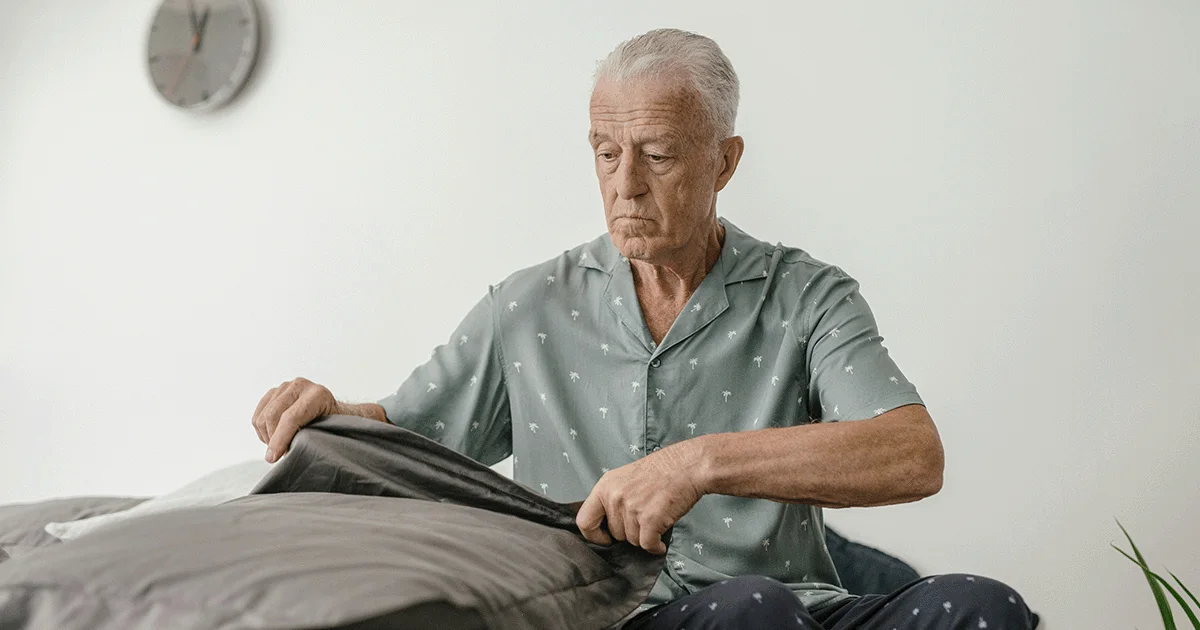Key takeaways
Death grip syndrome is when your penis becomes less sensitive as a result of frequent masturbation with an overly firm grip.
Though not a recognized medical condition, death grip syndrome may affect your sex life in a negative way.
Reducing the frequency and intensity of your masturbation can restore sensitivity in your penis. Some people may also experience erectile dysfunction alongside death grip syndrome, which is treatable.
Here's what we'll cover
Here's what we'll cover
Here's what we'll cover
Key takeaways
Death grip syndrome is when your penis becomes less sensitive as a result of frequent masturbation with an overly firm grip.
Though not a recognized medical condition, death grip syndrome may affect your sex life in a negative way.
Reducing the frequency and intensity of your masturbation can restore sensitivity in your penis. Some people may also experience erectile dysfunction alongside death grip syndrome, which is treatable.
Death grip syndrome sounds rather ominous. The good news: It’s something you can probably treat at home. The less-good news: It can definitely take a toll on your sex life if left unchecked. Wondering, “what is death grip syndrome?” We’ve got all the answers about this curious condition, what causes it, and how you can manage it.
What is death grip syndrome?
“‘Death grip syndrome’ isn’t an official medical diagnosis, but it’s a real and increasingly common phenomenon I see in the clinic,” says Justin Houman, MD, FACS of Tower Urology at Cedars-Sinai Medical Center. “It refers to decreased penile sensitivity and difficulty reaching orgasm during partnered sex after prolonged or intense masturbation, usually with a very tight or repetitive grip that the body adapts to over time.”
Some sources say this conversational term was coined by sex writer Dan Savage in a column written in 2003. More than 20 years later, plenty of people still use the term on Reddit and TikTok to describe an overly-firm masturbation technique. Presumably, it’s been dubbed the “death grip” because it refers to holding the penis so tight it’s like you’re trying to kill it — or because it can kill your partnered sex life. A pretty image, we know.
One medical study from 2015 does suggest that some masturbation techniques can lead to anorgasmia — an inability to orgasm — or delayed orgasm. The study found that among men who can achieve orgasm with masturbation but have difficulty doing so with a partner, one of the main causes is a loss of penis sensitivity due to vigorous masturbation. It also found that people who experience delayed orgasm frequently have unusual and specific masturbation methods that can be hyperstimulating, including masturbating more frequently than average.
Since it’s impossible to replicate certain sensations (like the feeling of a super-tight hand) during oral sex or vaginal sex, it can become challenging to reach orgasm during partnered sexual encounters if that’s what you’ve become accustomed to.
Symptoms of death grip syndrome
Since death grip syndrome isn’t a medical condition, there’s no “official” list of symptoms. But Dr. Houman says symptoms men describe that might indicate death grip syndrome include:
Reduced penile sensitivity or numbness in the penis
Loss of pleasure or emotional disconnection during intimacy
Decreased erection quality or arousal with partners, despite a normal bodily response during masturbation
Causes of death grip syndrome
Why might someone develop a super-strong masturbation technique? A few studies explore why some people have reduced penis sensitivity, and therefore need an extra-strong grip to get off. Potential causes of death grip syndrome include:
Being a cyclist
While biking is good for cardiovascular health — which does impact your erections — a medical review found that as many as 50% to 91% of cyclists report genital numbness. If your penis is less sensitive as a result of your cycling habit, it makes sense that you’d masturbate with a firmer grip for more intense stimulation.
Taking certain medications
Penile numbness can be caused by certain medications. For example, antidepressants commonly cause decreased sensitivity in the penis — which can then lead to someone masturbating a bit too aggressively, leading to death grip syndrome. Eldepryl, a medication used to treat Parkinson’s disease, has also been linked with decreased penile sensation.
Masturbating frequently (and in a specific way)
One study found that increasing the frequency of masturbation can lead to a decline in penis sensitivity. This then creates a "vicious cycle” where someone increases the intensity of their grip to counteract declining sensitivity, which in turn leads to difficulty achieving orgasms in other settings.
The same study noted a correlation between delayed orgasms and “idiosyncratic” masturbation practices. So if you always masturbate with an extra-firm grip — and you can only orgasm in this specific way — you may be more likely to develop death grip syndrome over time and have trouble reaching orgasm with a partner.
Psychological conditioning
When you masturbate in this way, “The brain associates orgasm only with the specific stimulation pattern, making partnered sex less rewarding,” Dr. Houman explains. He notes that over time, an overly strong or repetitive grip during masturbation overstimulates the penile nerve endings and eventually “trains” the brain to only respond to that type of mechanical input.
Lubrication issues
“Dry friction increases mechanical stress and micro-irritation of the penile skin,” Dr. Houman adds. These micro-irritations can cause damage to the penile nerves, decreasing sensitivity over time.
Can death grip syndrome cause erectile dysfunction?
Since death grip syndrome isn’t a studied medical condition, there’s no research that tells us whether or not it can directly cause erectile dysfunction (ED). But there may be some overlap between symptoms of ED and death grip syndrome.
Quick review: Erectile dysfunction is when someone has difficulty achieving or maintaining an erection strong enough for satisfying sexual activity. It can happen due to many possible causes, and can be treated in a variety of ways. Death grip syndrome, on the other hand, is mostly a conversational term that refers to an overly strong grip during masturbation, which can lead to decreased penis sensitivity and difficulties reaching orgasm during partnered sex.
Notably, difficulties having satisfying sex with a partner can be a symptom of both ED and death grip syndrome. A loss of libido may also be a symptom of both ED and death grip syndrome. But it’s hard to say which one causes the other.
That’s why your best bet is to talk to your healthcare provider about what you’re experiencing. They’ll be able to help you figure out the best course of action — whether that’s ED treatment, changing up your masturbation habits, therapy, or something else. Erectile dysfunction can be treated, and so can death grip syndrome.
How to recover sensitivity and treat death grip syndrome
Don’t panic: Death grip syndrome is not a death sentence for your sex life. Over time and with lifestyle changes, your penis can become more sensitive so you don’t have to go at it quite so hard during your solo sessions — which will also make it easier to get off with a partner. Easing off a bit can actually put that spark back into your sex life, but it’ll take a little bit of patience and readjusting your habits. Here’s how.
Take a break
Dr. Houman suggests abstaining from masturbation for two to three weeks to let your nerves and skin recalibrate.
Loosen your grip and use lubrication
“When you resume masturbating, mimic the sensation of partnered sex with slow, varied pressure and lubrication,” Dr. Houman suggests. It might take more time or a slightly different rhythm than you’ve been using to reach orgasm, but hey, experimenting is fun.
Mix up your routine
One study suggests that a treatment for delayed ejaculation may be to masturbate in a manner different from your usual routine. The study suggested progressively “shaping” your masturbation routine closer to what you will experience with partnered sex, by changing hands or positions or settings. Dr. Houman also suggested this as a treatment option, noting that men can use their non-dominant hand or a soft stroker sleeve to retrain sensory pathways.
Don’t press play on that porn
Dr. Houman recommends limiting porn consumption. “Overstimulation from visual content can also reduce arousal with real partners,” he says. Some research has found a link between pornography consumption and sexual dysfunction, including delayed ejaculation, decreased interest in partnered sex, and reduced sexual satisfaction.
Try pelvic floor therapy
“In some men, tight pelvic muscles or chronic pelvic tension contribute to sensitivity issues,” Dr. Houman says. Pelvic floor therapy can involve working with a medical professional to massage pelvic floor muscles to release tension and improve blood flow.
Make lifestyle changes that support overall sexual health
“Optimize sleep, testosterone levels, and cardiovascular fitness, all of which affect nerve sensitivity and sexual response,” Dr. Houman says. Speak with your healthcare provider about how to go about optimizing these factors if they are an issue for you.
Talk to a healthcare provider
Dr. Houman suggests consulting a healthcare provider if:
Numbness, tingling, or loss of sensitivity persist beyond 6 weeks, despite stopping the tight-grip habit.
You notice erectile difficulties, pain, or a new or increased curvature.
You lose sexual desire or experience anxiety or depression around intimacy.
You have underlying conditions like diabetes, neuropathy, or low testosterone that can worsen sensitivity loss.
“A urologist can evaluate you for hormonal, vascular, or nerve-related issues and may refer you to a pelvic floor therapist or sex therapist if behavioral retraining is needed,” he says.
Your healthcare provider may also evaluate you for ED. Death grip syndrome isn’t the same as erectile dysfunction, though there can be some overlap between symptoms. If you’re experiencing a lack of sensitivity downstairs coupled with difficulty getting or maintaining an erection that’s satisfying for sex, it may be worth exploring whether you also have ED.
Some of the options providers may suggest for treating ED include medications like Viagra (sildenafil) or Cialis (tadalafil). You may also want to explore Ro’s prescription-only edible formulations, Ro Sparks or Daily Rise Gummies, both of which are compounded medications (meaning they are available in a different form than the pill form approved by the United States Food and Drug Administration, but still contain active ingredients that are individually FDA-approved for ED). Other treatments for ED include lifestyle changes, medical devices, and more.
Bottom line
Death grip syndrome generally refers to someone gripping their penis too hard during masturbation, which in turn, can make it more challenging to reach orgasm during partnered sex. Though it’s not a medical term, there are some studies that indicate frequent or intense masturbation can lead to difficulties reaching orgasm.
Masturbating too hard and too frequently can lead to a loss of sensitivity in the penis. This can make it challenging for some men to reach orgasm with a partner.
Death grip syndrome can have different causes. Excessive masturbation is the main culprit, but sometimes that happens due to a loss of genital sensitivity from other causes.
It’s possible to treat death grip syndrome. Masturbating less often and with less intensity can be a first-line treatment. Other potential treatments may be pelvic floor therapy, limiting porn consumption, and making lifestyle changes.
Frequently asked questions (FAQs)
Is death grip syndrome real or fake?
It’s not an official medical condition, but that doesn’t mean it’s not real. The term dates back to 2003, when sex columnist Dan Savage first wrote about it. Since then, many people have shared on social media about their experiences with “death grip syndrome.”
Studies back up the theory that masturbating too aggressively can decrease penis sensitivity.
How long does it take to recover from death grip syndrome?
Dr. Houman says most men see improvement within four to six weeks of consistent behavioral change.
DISCLAIMER
If you have any medical questions or concerns, please talk to your healthcare provider. The articles on Health Guide are underpinned by peer-reviewed research and information drawn from medical societies and governmental agencies. However, they are not a substitute for professional medical advice, diagnosis, or treatment.
Viagra Important Safety Information: Read more about serious warnings and safety info.
Cialis Important Safety Information: Read more about serious warnings and safety info.
References
FDA. (n.d.). ELDEPRYL (SELEGILINE HYDROCHLORIDE) CAPSULES. Retrieved from https://www.accessdata.fda.gov/drugsatfda_docs/label/2008/020647s006s007lbl.pdf
Higgins, A., Nash, M., & Lynch, A. M. (2010). Antidepressant-associated sexual dysfunction: impact, effects, and treatment. Drug, Healthcare and Patient Safety, 2, 141–150. doi: 10.2147/DHPS.S7634. Retrieved from https://pubmed.ncbi.nlm.nih.gov/21701626/
Jenkins, L. C. & Mulhall, J. P. (2015). Delayed orgasm and anorgasmia. Fertility and Sterility, 104(5), 1082–1088. doi: 10.1016/j.fertnstert.2015.09.029. Retrieved from https://pmc.ncbi.nlm.nih.gov/articles/PMC4816679/
Leibovitch, I. & Mor, Y. (2005). The vicious cycling: bicycling related urogenital disorders. European Urology, 47(3), 277–287. doi: 10.1016/j.eururo.2004.10.024. Retrieved from https://pubmed.ncbi.nlm.nih.gov/15716187/
Leslie, S. W. & Sooriyamoorthy, T. (2024). Erectile dysfunction. StatPearls. Retrieved from https://www.ncbi.nlm.nih.gov/books/NBK562253/
Oja, P., Titze, S., Bauman, A., et al. (2011). Health benefits of cycling: a systematic review. Scandinavian Journal of Medicine & Science in Sports, 21(4), 496–509. doi: 10.1111/j.1600-0838.2011.01299.x. Retrieved from https://pubmed.ncbi.nlm.nih.gov/21496106/
Park, B. Y., Wilson, G., Berger, J., et al. (2016). Is internet pornography causing sexual dysfunctions? A review with clinical reports. Behavioral Sciences (Basel, Switzerland), 6(3), 17. doi: 10.3390/bs6030017. Retrieved from https://pmc.ncbi.nlm.nih.gov/articles/PMC5039517/
Perelman, M. A. (2016). Psychosexual therapy for delayed ejaculation based on the Sexual Tipping Point model. Translational Andrology and Urology, 5(4), 563–575. doi: 10.21037/tau.2016.07.05. Retrieved from https://pmc.ncbi.nlm.nih.gov/articles/PMC5001992/
Savagelovestg. (2003, July 17). Elusive release. Dan Savage. Retrieved from https://savage.love/savagelove/2003/07/17/elusive-release/













